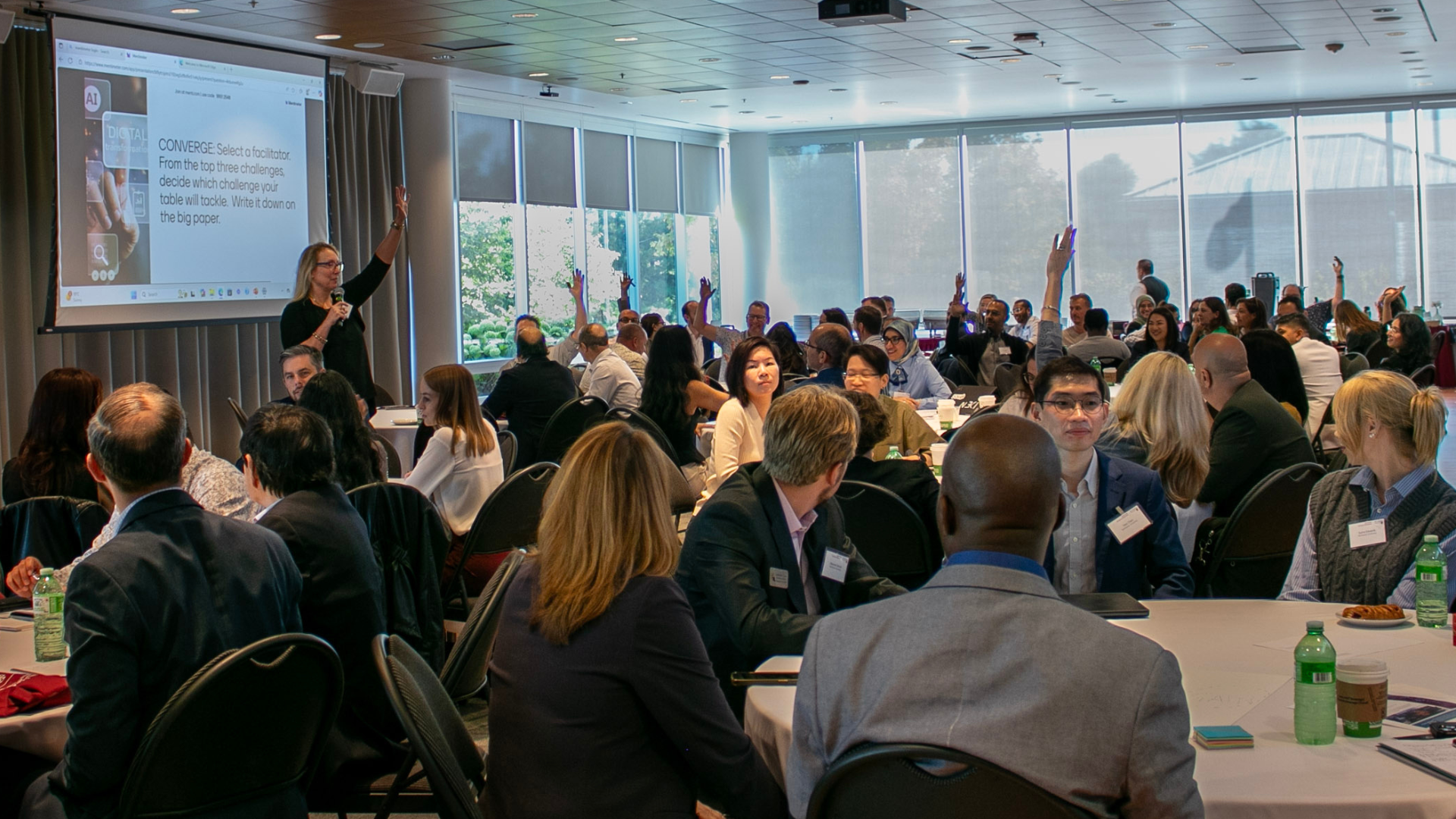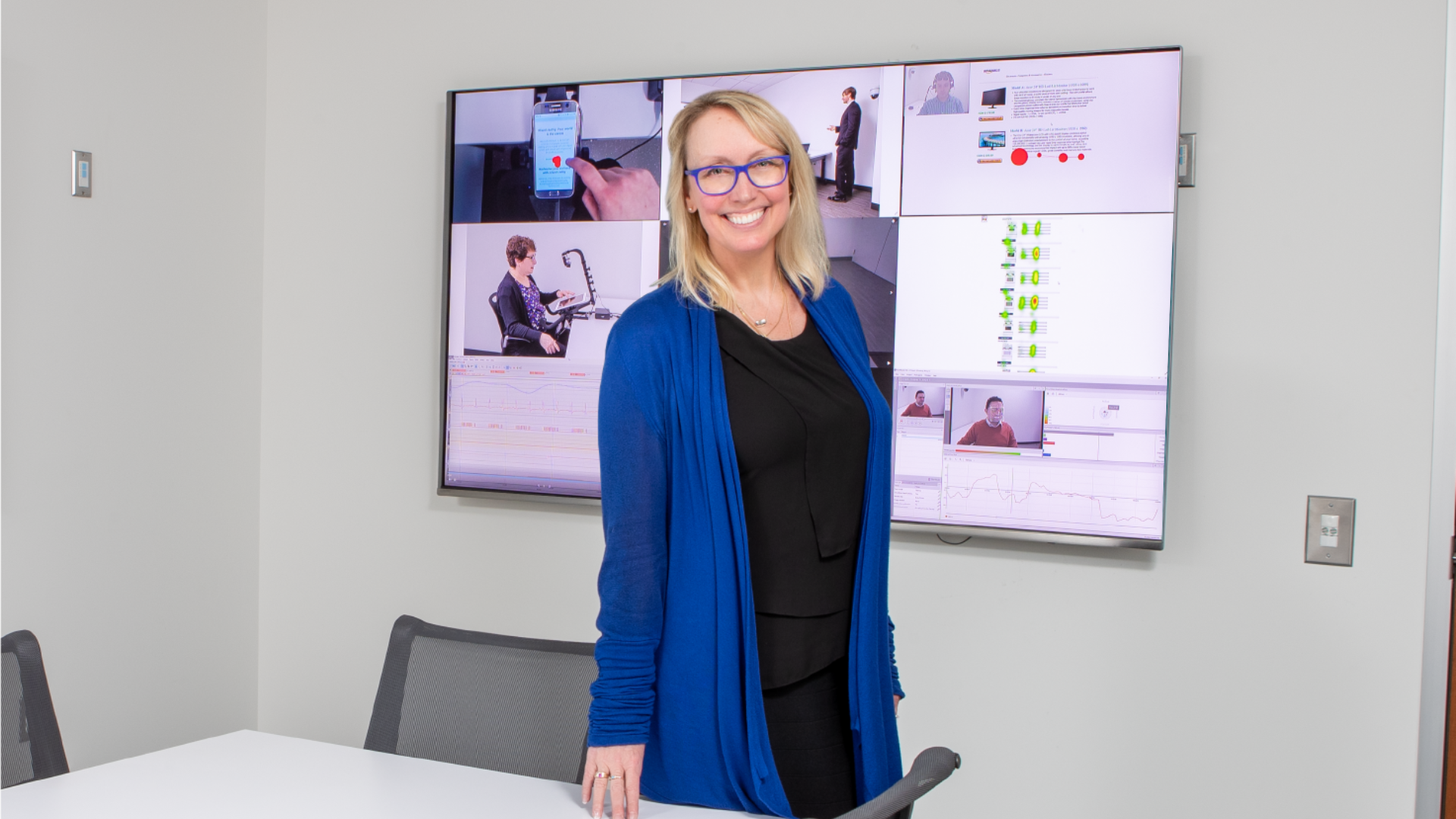Does Canada need a mindset shift?
August 26, 2025 ·
Contributed by: Grace Mullen

There isn’t a one-size-fits-all solution for the digital innovation and productivity growth challenges Canada faces. Across every major industry and sector, spanning education, health care, law, consulting, energy and natural resources, and even retail, the country is lagging on the global stage.
DeGroote’s Digital Futures Symposium
From AI to broadband access, from climate accountability to legal lag, this year’s Digital Futures Symposium from September 15-16 in Burlington, brings together thought leaders with vastly different perspectives—but one shared purpose: to move the country forward.
From inefficiencies in supply chain operations, long wait times and lack of access to potentially lifesaving treatments, poorer air quality and isolation from parts of Canada—no matter how you look at it, everyone is impacted by the global race toward digital innovation and progress.
“Digital transformation isn’t just a buzzword—it’s shaping every corner of society,” says Milena Head, Director of the McMaster Digital Transformation Research Centre.
Canada needs a mindset shift—and fast. Digital transformation goes beyond simply adopting new technology—it demands rethinking systems, redesigning institutions and reshaping mindsets.
This important event will bring together leaders from academia, government and industry—experts in AI, data governance, sustainability, market infrastructure, healthcare, entrepreneurship and more—to tackle these challenges collaboratively. Here is a glimpse of some of the critical mindset conversations that will take place at the Symposium:
Digital transformation mindset
Whether you call it digital transformation, digital reinvention or some other variation, true digital innovation requires more than just tools to progress. Simply adding Microsoft Copilot to a corporation workflow won’t solve the underlying challenges.
As Digital Futures Symposium speaker, Mark Segal, former CIO of CBI Health, explains, “Ultimately, digital transformation in healthcare is about rethinking how care is delivered and experienced. That takes leadership, vision and collaboration across clinical, operational and technology teams—not just new software.”
The same principle applies across every sector. Without a clear, coordinated strategy, even the most promising technologies risk becoming missed opportunities. The Symposium will explore how to leverage existing strengths, overcome systemic barriers and transform Canada’s digital potential into tangible progress.
Ethics and responsible innovation mindset
Technology moves fast. Law doesn’t.
The Symposium will emphasize ethical frameworks that protect privacy, build public trust and promote inclusive, sustainable growth. Legal scholars and policy leaders will weigh-in on how to regulate in real time, creating frameworks that are both agile and accountable.
Speakers will also look at how organizations can adopt sustainable principles into decision-making, to ensure that innovation does not come at the expense of the natural environment. Environmental regulations such as ESG reporting standards may slow organizations down and stifle innovation, but we only have one planet that we all share and preserving it can’t be an afterthought.
“So how does Canada lead here?” asks Symposium speaker and ESG expert Lindsay Hampson. “We need a mindset shift, and fast. Sustainability really can’t be something we ‘get to eventually’. It needs to be integrated into how we build, sell, hire and report.”
Bridging the digital divide between academia and industry mindset
Academia and industry may seem like foreign worlds, but there is a lot they can learn from each other. Academics risk missing out on putting their theories into practice, while industry risks missing out on best practices to integrate solutions into their direct applications. By working together collaboratively, these different mindsets can share ideas and perspectives to reach a deeper understanding.
Talking about the barriers between bridging academia and industry, Symposium speaker Rob Austin, Digital Innovation Professor at Ivey Business School, explains the differences in norms of communication between the two worlds. “To put it simply, academics want to talk about the model first and use practical examples to illustrate; practitioners want to talk about applied problems first then unpack that into models and frameworks.”
Risk aversion mindset
Canada is often described as risk adverse. Symposium speakers will explore how Canada’s traditionally cautious investment culture and slower technology adoption may hinder innovation. They will discuss the potential of high-impact technologies, particularly AI, to improve efficiency across critical sectors like logistics and healthcare.
“If we want to compete globally, we need to scale innovation—not just in startups or tech giants, but across mid-sized businesses, education and public institutions,” says Symposium speaker and president of MARKAT Group, Kathryn Botchford.
Commercialization and innovation mindset
Canada needs a better commercialization pipeline. One way this can happen is by fostering research and industry collaborations. When investors get involved with research projects at the ideation stage, they can help guide the solutions to real-world problems. With increased capital comes the ability to retain top talent and keep Canadian innovation at home.
“I think there’s enough capital in Canada, but there’s just not enough mechanisms for that capital to get deployed,” says Symposium speaker and serial entrepreneur Wayne Purboo.
The 2025 Digital Futures Symposium, taking place September 15-16, 2025 in Burlington, will tackle a wide range of topics on Canada’s digital reinvention and how the country can secure its place as a global innovation leader. For more information and to register, visit the MDTRC website.














